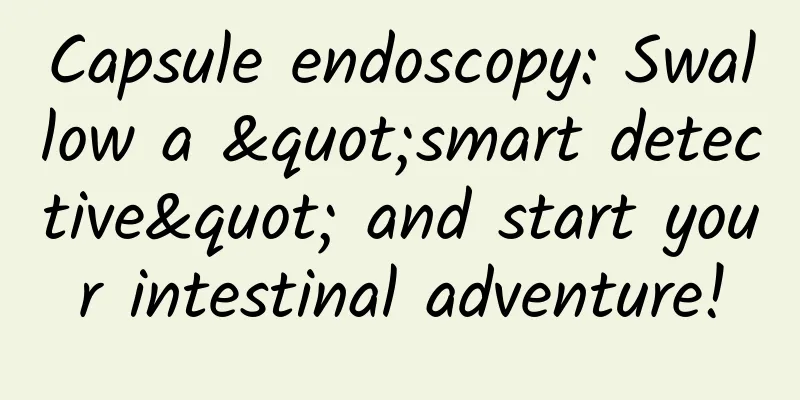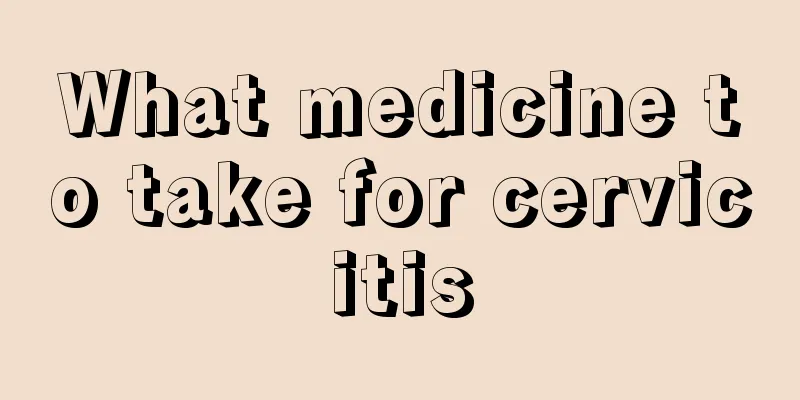Treatment of cesarean section wound inflammation

|
We all know that there will be some pain during the process of giving birth through cesarean section, but there will always be some pain after delivery due to the healing of the incision and the recovery of the body. Sometimes, if you are not careful after cesarean section, it is easy to cause incision inflammation. This is often a problem that many mothers and their families are most worried about. Let’s learn about what to do if the cesarean section incision becomes inflamed? What to do if the cesarean section incision becomes inflamed Inflammation and pus discharge from the cesarean section incision are caused by infection and need to be treated with antibiotics such as amoxicillin, metronidazole, etc. In addition to antibiotic treatment, it is best to go to the hospital for dressing changes, drainage and hospitalization if necessary. At the same time, you should pay attention to rest and avoid spicy food, tobacco and alcohol. The specific treatment is decided by the local doctor based on the patient's specific situation. The specific recovery time also depends on the treatment situation. Diet speeds up cesarean section incision recovery On the basis of local treatment of the wound, systemic nutritional support therapy is carried out to improve the body's nutritional level and enhance the regenerative capacity of tissue cells, thus promoting wound healing. 1. Improve nutrition: Eat more foods that promote wound healing. Fatty lipids are the basis of cell membranes and inflammatory mediators, and their deficiency can lead to impaired wound healing. Fish oil is rich in fatty acids, has anti-inflammatory effects, and is beneficial for wound healing. Increasing protein and collagen in the protein diet can promote wound healing and reduce the chance of infection. Protein-rich foods include various lean meats, milk, eggs, black fish, etc. Vitamin A can reverse the inhibitory effect of corticosteroids on wound healing and promote wound healing. It is mainly found in foods such as fish oil, carrots, and tomatoes. Vitamin C can promote the synthesis and cross-linking of collagen, thereby promoting wound healing. 2. If necessary, intravenous supplementation of albumin, vitamin C, etc. can be given to accelerate wound healing. Caesarean section incision recovery taboo It is not advisable to lie flat: After the operation, the effect of anesthetics disappears and the mother feels pain in the wound. The pain of uterine contraction in the lying position is sensitive, so she should lie on her side with the body at an angle of 20-30 degrees to the bed. A quilt or blanket can be placed behind her to reduce the vibration and pulling pain of the incision when the body moves. It is not advisable to lie still: you should engage in limb activities after your consciousness recovers after the operation. After 24 hours, you should practice turning over, sitting up, and getting out of bed and moving slowly. This can enhance gastrointestinal motility, expel gas sooner, and prevent intestinal adhesion and thrombosis that may cause embolism in other parts of the body. Do not eat too much: during cesarean section, the intestines will inevitably be stimulated, the normal function of the gastrointestinal tract will be suppressed, and intestinal motility will be relatively slowed down. Eating too much will increase the amount of metabolites in the intestines and prolong their retention time in the intestines, which can not only cause constipation, but also increase gas production and abdominal pressure, which is not conducive to recovery. Therefore, you should fast within 6 hours after surgery, and then gradually increase your food intake. The above is an introduction to what to do if the cesarean section incision becomes inflamed. The consequences of cesarean section incision inflammation are also very serious. This problem must be taken seriously by us, especially postpartum mothers must pay more attention to their own health issues. After all, only by ensuring a healthy body can you take better care of the baby, especially the recovery of the incision must be paid special attention. |
<<: How to prevent women's diseases
>>: How long is the interval between menstruation?
Recommend
Causes of itching on cesarean section incision
After the operation, the wound needs to recover s...
Symptoms of Qi and Blood Deficiency in Women
Women's Qi and blood functions are slightly l...
How can women lose belly fat?
Female friends care the most about their figure. ...
Can pregnant women use dexamethasone sodium phosphate injection?
Pregnant patients need to be more careful than or...
What foods are good for pregnant women with bloating?
Pregnant women with bloating should pay attention...
Nausea and vomiting on the first day of menstruation
Recently, many women have been asking about this ...
What should I pay attention to when I have breast fibroids?
Breast fibroma is a common disease in women. Brea...
How to treat knee pain caused by postpartum disease
Many women suffer from knee pain. There are many ...
What is the cause of brown and fishy vaginal discharge?
When women have abnormal leucorrhea, they should ...
What is the cause of heavy menstrual flow and black blood clots?
The menstrual period is the most vulnerable time ...
Patting your arms to eliminate milk knots
Milk lumps are quite common during lactation. The...
Having this habit in the morning increases the risk of Alzheimer's disease by 4 times! Hurry up and take this "brain-building" strategy!
Alzheimer's disease may seem far away, but it...
The reason why lochia is always red
Lochia is a substance that is discharged from the...
How long is the head and arm of a three month old fetus?
A woman's pregnancy period is divided into th...









